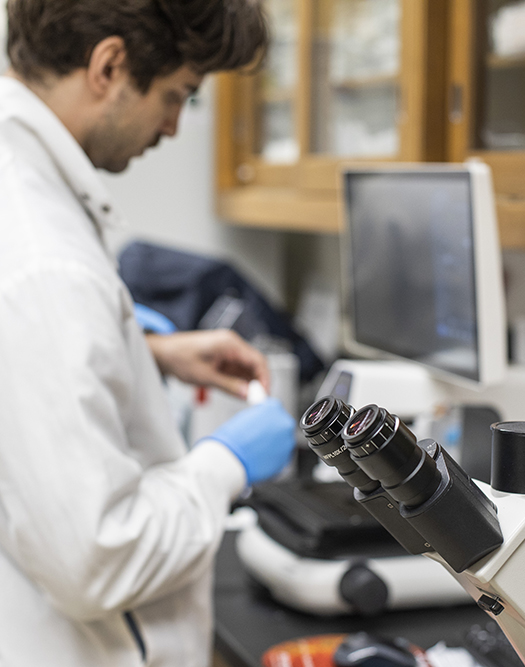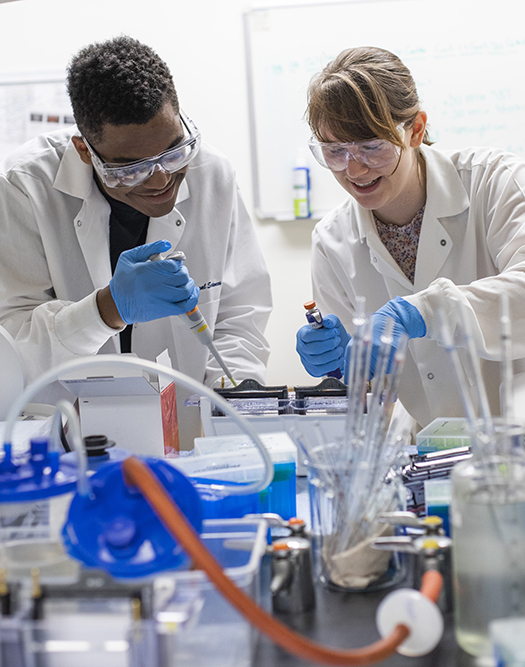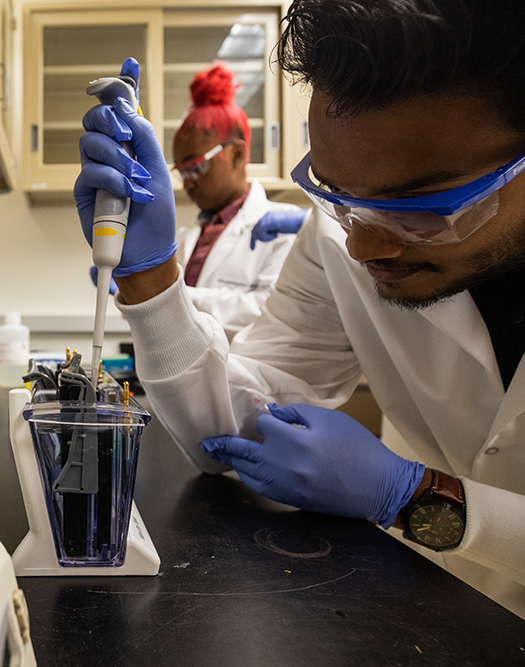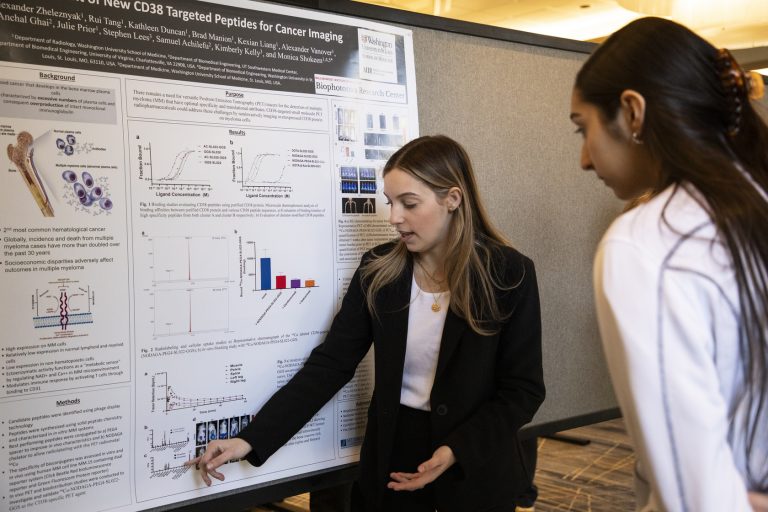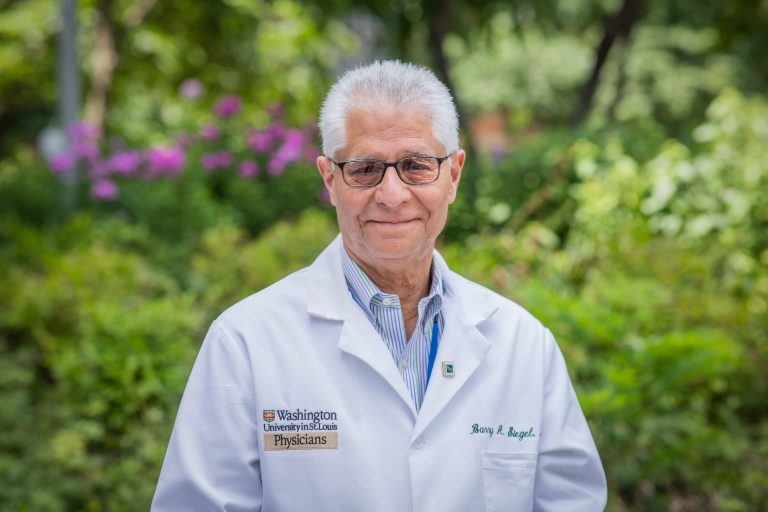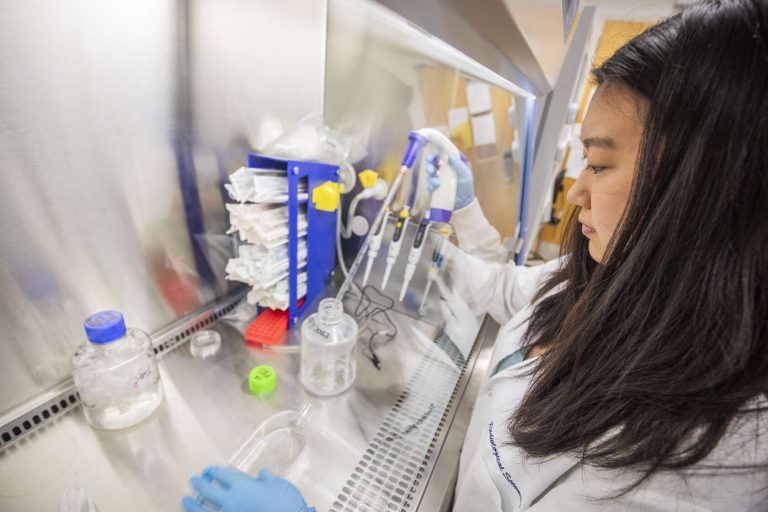Disease Imaging and Therapy Lab
Our People
No employees matched your search
No employees matched your search
Research Technician
Na-Keysha Berry
Shayla Shmuel
Alex Vanover
Undergraduate Students
Yoojin Ahn
Cindy Luo
Abbey Zidel
Graduate Students
Carmen Azevedo
Alex Benton
Summer Students
Will Smith
Mentorship
The mentoring approach in the Disease Imaging and Therapy Lab combines effective communication, excellence in scientific performance, and creating an inclusive and diverse environment to foster a collegial and collaborative atmosphere for all lab members.
Mentor Responsibilities
I am responsible for motivating and training mentees to be the best scientists they can. At the same time, I provide as many opportunities as possible for mentees to pursue their scientific and professional goals, whatever those may be.
Mentee Responsibilities
Mentees are responsible for being present, proactive, and curious. They also should act with rigor, integrity, and humility while being kind to themselves and respectful to all lab members.
In summary, the mentoring approach in the Disease Imaging and Therapy Lab was built on my experiences spanning several countries (Portugal, Germany, and United States), having many gender-diverse role models and mentees. I work to create a research laboratory that combines performance and moral character in an inclusive and diverse environment. I believe that diversity of experiences results in diversity of ideas, which contributes to better science. I work with each mentee to set specific individual goals, measure accomplishments, and establish a culture in the laboratory that encourages and empowers them to seek whatever they need to excel. My major approach to motivate students has been to help them answer the following three important questions as they decide what to do with the next years of their lives.
- What are you passionate about?
- How can you improve?
- What can we do to help you?
Mentoring does not end because the mentee leaves the lab. I maintain connections with students once they transfer campuses or institutions. I do my best to help them navigate their future careers and continues to advocate for them.
MIR’s Office of Diversity, Equity and Justice promotes equity for all members of MIR by fostering a community that embraces and reflects diversity of backgrounds, experiences and perspectives.
Professional Development
During the interview and discussing scientific interests, the mentees must show curiosity and enthusiasm for the lab’s research. The potential projects should be exciting, enable them to acquire the skill sets necessary for their future objectives while essential for research and discovery. There is flexibility to adjust these projects further and ensure that everyone’s motivation and enthusiasm are well aligned.
Because every student has different goals, interests, and challenges, an individual development plan (IDP) is structured for each mentee. From the first day in the lab, the mentee should take advantage of the following opportunities:
Mentoring in the lab occurs in the form of mandatory individual meetings and sub-group meetings of teams working on related projects. Individual meetings can be multiple weekly meetings for trainees that work better on a tight schedule or weekly meetings for others who work best with increased independence. These meetings aim at discussing experimental design, findings, and interpretations, and the trainees must prepare and think about the results and future directions of the project before the meeting. At the end of the individual meetings, the trainees must have a clear plan regarding the next steps. Individual meetings are also safe moments for mentees to share concerns.
Weekly lab meetings allow each mentee to present data for the entire group to provide feedback on the analyses. At lab meetings, one person might also give a detailed update on a specific project. Journal Clubs/Discussion Meetings are every other week and they allow for presentations of papers of their choice or a study that interests the entire lab. These meetings intend to discuss science and have discussions around diversity, equity, and inclusion and how we can better perform as a team.
Annual meetings are dedicated to discussing performance, motivation, and career goals. We reevaluate the mentee’s IDP and my performance as a mentor. Non-regular meetings can be set up via email/Slack message or at any time my office door is open. Departmental Seminars are highly recommended for all mentees
Each project in the lab requires that mentees develop specific technical competencies. They need to know how to design an experiment, collect, analyze, and interpret data. Additionally, they should keep meticulous records documenting their work and meeting regulatory requirements. They then need to communicate their research in the form of formal presentations and written work, as well as during less formal conversations. Mentees might not excel in all these areas; if that is the case we will commit time and energy to perceive their individual struggles and give thoughtful and thorough training and advice. Mentees serve as mentors to less experienced trainees in ways that foster their mentoring and listening experiences. Discussion sessions will then ensure that these mentor-mentee relationships are effective for both parties.
We will encourage our mentees to write scientific papers, present their work in conferences, participate in training courses, and apply for fellowships and awards. We will be delighted to provide recommendation letters, discuss specific aims for proposals, and help find the best resources to write effectively. If sent well enough in advance, a detailed and honest feedback to any writing piece will be provided. We also reinforce that trainees utilize their peers to ask for feedback when preparing a grant/paper or preparing for a presentation. As projects evolve and the research ideas take shape, the possibility of drafting parts of a grant proposal is discussed with the trainees to support part or all of their work.
The individual meetings are tailored to encourage their identity and creativity as scientists, independent critical thinking, and project ownership. To promote their independence, they are also introduced to resources that might be helpful in the process. Additionally, we will provide opportunities for networking or collaboration, arranging an introduction if necessary.
We train and work continuously with our mentees to maintain awareness for policies, procedures, and practices that address scientific integrity in the lab. Recognition of ignorance requires humility. It is the first step in creating opportunities for learning and promoting scientific growth. Mentees must understand that we do not have all the answers in the research projects they are leading and not in mentoring. On the other hand, as mentees grow into tomorrow’s scientists, they must recognize, with humility, their ignorance and failures in the process.
Every individual achievement in the lab is celebrated by all members of the lab. Social events in the lab are as simple as a cake, ethnic dinners, celebrating every birthday, picnics, biking or hiking trips.
Lab Values
In the Ribeiro Pereira Lab, WE:
- Use imaging tools to better understand tumor biology, converting non-responders into responders.
- Believe in science. And research. And data. And evidence. And scientific collaboration.
- Welcome peoples of all backgrounds that fully respect the broad diversity of our society.
- Believe that diversity of experiences results in diversity of ideas, which contributes to better science.
- Engage young students for a career in science or professions underpinned by science.Act with rigor, integrity, and humility.
- Work in an environment that allows members to participate and benefit equally.
- Are present, proactive, and curious.
- Act with rigor, integrity, and humility.
- Are kind to ourselves and respectful to all lab members.
- Work hard, help each other, celebrate each other’s achievements, and have fun!
Work-Life Balance
We believe that a good work-life balance and healthy relationships outside of the laboratory contribute to everyone’s success in the lab. They are very important for mental health and sanity. Productivity is more important (and very different) than the number of working hours.
We respect that every mentee might have different work habits and understand that the projects go through phases depending on experiments, deadlines, and commitments. We will never plan for mentees to work late or during the weekend time. Still, if we face a short deadline, it will be their choice whether working late is a possible solution. On the other hand, we encourage everyone to be around during work hours so they can all learn from each other, collaborate, attend meetings, and participate in scientific discussions.
While trainees plan for their daily tasks in the lab, good time-management and strategic thinking are encouraged. Although we are very tolerant with mentees working away from the office while analyzing data or writing, we will require an update on the progress, meeting in person when needed while being flexible in meeting electronically when appropriate. With that said, time off and holidays are highly encouraged. However, to be sure it does not interfere with the laboratory activities and proposal deadlines, we should be aware of the days a mentee intends to be out of the lab.
Postdoctoral Research Associate
There is an immediate opening for a postdoctoral research associate available at the Disease Imaging and Therapy Lab, based in the Precision Radiotheranostics Translation Center (PRTC) of Mallinckrodt Institute of Radiology (MIR) at Washington University School of Medicine in St. Louis.
Job Opportunities
The Disease Imaging and Therapy Lab is seeking research technicians, graduate students, and postdoctoral fellows interested in molecular imaging tools to understand tumor biology and response to therapies. We offer as many opportunities as possible to help you develop into a stronger scientist with precious skill sets in biochemistry, medicinal chemistry and radiochemistry.
To be considered for future openings, email your CV to Dr. Patricia Ribeiro Pereira.
Visit the Opportunities page to find open positions.





